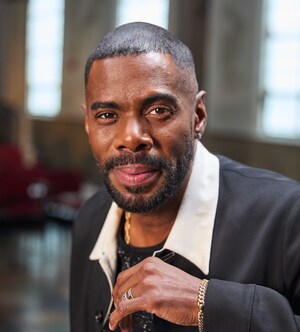Changing the Narrative is the Call of Nation's Civil Rights Leaders
Active Twitter Feed Tells the Story
ASHEVILLE, N.C., April 25, 2013 /PRNewswire-USNewswire/ -- A dozen of the nation's leading civil rights leaders told participants at the W.K. Kellogg Foundation's 2013 America Healing Conference that mobilizing civic participation, collaborating on issues and changing the established narratives are the keys to addressing racism and moving the nation toward more equitable opportunities.
Moderated by acclaimed broadcast journalist Soledad O'Brien, the panelists cited the critical role of narratives in shaping the most important public and social policy issues of the day. Much of the conversation addressed the modern environment for seeking change, citing the emergence of new priorities and methods.
Rinku Sen, president and executive director of the Applied Research Center, noted that policy and mindset change are critical. She articulated how people of color are cast in particular roles. Sen said, "And if we want to change the role that we're given, the way that we are cast, we have to tell a set of stories again and again and again and again, and …in many different ways."
Sen reflected on the successful efforts to remove the word "illegal" for undocumented immigrants from the media lexicon. Both the Associated Press and USA Today have done so and others are moving toward it. Ultimately, she said, it helped push for a new immigration policy.
Ben Jealous, president and CEO of the NAACP, reminded the audience of the need to be inclusive in approaches to changing the narratives.
"When we talked about a new majority, if our new majority doesn't have a vision for white folks who've been locked in poverty generationally, then we're never going to quite get there."
President and CEO of the National Council of La Raza Janet Murguia celebrated recent gains in this work with conference participants. "And now – I tell people; I correct them, we created this moment. And we did so by overcoming incredible barriers."
Moving forward, Jacqueline Pata, executive director of the National Congress of American Indians, encouraged participants to continue working to change the narratives through personal relationships. "I believe all of you should be having dinner table conversations … And make sure that you invite different peoples of color that you promote those conversations, because I believe that's where we're going."
Sen, Murguia, Jealous and Pata participated on the panel with Kathleen Ko Chin, president and chief executive officer of the Asian & Pacific Islander American Health Forum; Ralph Everett, president and chief executive officer of the Joint Center for Political and Economic Studies Inc.; Alvin Herring, director of training at the PICO National Network; Marc Morial, president of the National Urban League Inc.; Miles Rapoport, president of Demos: A Network for Ideas and Action; and Philip Tegeler, executive director of the Poverty & Race Research Action Council.
On Twitter, conference participants participated in the conversation:
- Rob Corcoran@RobCorcoran1: If we can come together on immigration we can work together on other issues, says Janet Murguia Nat. Council of La Raza #AHconf13
- Chris Stewart@citizenstewart: #AHConf13 Marc Morial: "we have to give Americans a history lesson" about early 20th century. Diversity transformed the country.
- L. Herrera y Lozano@herreraylozano: @BenJealous : When we fight against mass incarceration, we're fighting for our families. #AHconf13 #warondrugs
- Mikhail Lyubansky@mikhaill: "There are lots of people who talk about family values who don't support policies that support families." ~ @BenJealous #AHConf13
- Rev Dr Jayme Mathias@RevDrJayme: @MARCMORIAL of @NatUrbanLeague: Our indep econ analysis reveals that undocumented immigrants have NOT cost AfricanAmericans jobs. #AHconf13
- Voices@VoicesAC: Kids! "@WK_Kellogg_Fdn: @BenJealous of @NAACP: the people that are the most vulnerable are the ones with no voices #AHConf13
"We were pleased to have so many people join the conversation on social media," said Gail Christopher, WKKF vice president – program strategy. "It demonstrates how important these issues are to them, and shows how eager they are to participate in the effort to bring about equity in our society."
The panel, "Indicators of Impact – Anchor Institutions," was a key segment of the 2013 W.K. Kellogg Foundation's America Healing Conference, with the theme: "Reclaiming the Narrative," and is part of the foundation's America Healing initiative, which provides support for organizations to address structural bias and facilitate racial healing in communities.
The conference is being held at the Grove Park Inn, 290 Macon Avenue, Asheville, NC 28804.
For more information about America Healing, visit www.AmericaHealing.org. Follow us @WK_Kellogg_Fdn
W.K. Kellogg Foundation
The W.K. Kellogg Foundation (WKKF), founded in 1930 as an independent, private foundation by breakfast cereal pioneer, Will Keith Kellogg, is among the largest philanthropic foundations in the United States. Guided by the belief that all children should have an equal opportunity to thrive, WKKF works with communities to create the conditions where vulnerable children can realize their full potential in school, work and life.
The Kellogg Foundation is based in Battle Creek, Mich., and works throughout the United States and internationally, as well as with sovereign tribes. Special emphasis is paid to priority places where there are high concentrations of poverty and where children face significant barriers to success. WKKF priority places in the U.S. are in Michigan, Mississippi, New Mexico and New Orleans; and internationally, are in Mexico and Haiti. For more information, visit www.wkkf.org.
SOURCE W.K. Kellogg Foundation
WANT YOUR COMPANY'S NEWS FEATURED ON PRNEWSWIRE.COM?
Newsrooms &
Influencers
Digital Media
Outlets
Journalists
Opted In





Share this article